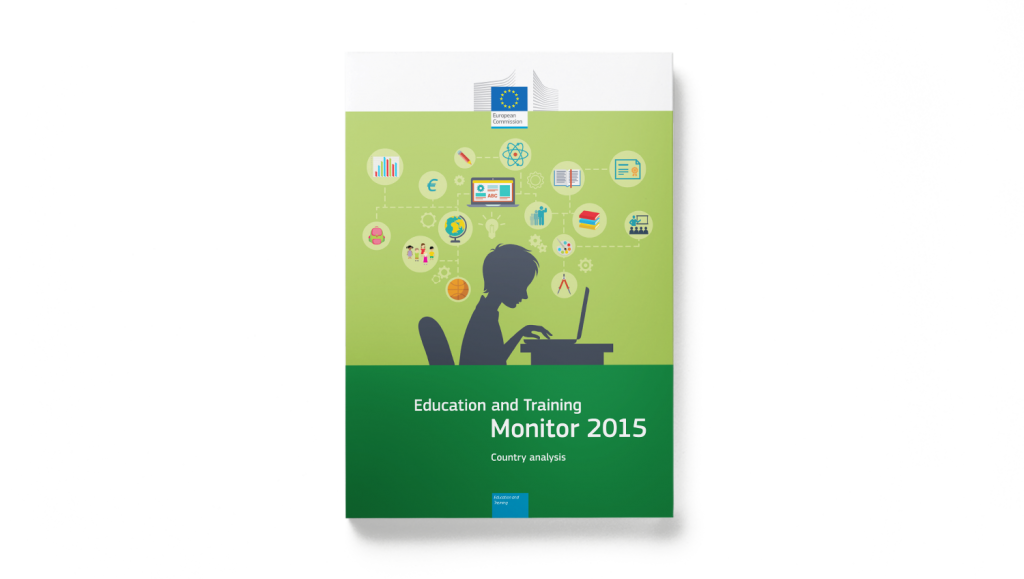Commission publishes its fourth annual Education and Training Monitor

The European Commission published the fourth annual edition of the Education and Training Monitor on 12 November 2015. Every year, the report captures the latest developments in Europe’s education and training systems, and provides policy-makers and other stakeholders with a clear picture of the trends, improvements and challenges at all stages of education in the EU.
This year, the Education and Training Monitor 2015 highlights education priorities most in need of investment, identifies policies that help improve the inclusiveness, quality and relevance of education and training systems, and links education to the EU’s social agenda. On the one hand, it shows that the EU is making progress towards reaching two of its headline targets for 2020. First, across the EU, the share of early school leavers has dropped to 11.1% (against 12.7% in 2012), which is closer to the final target of 10%. Second, the share of 30 to 34 year-olds having completed tertiary education has risen to 37.9%, compared to the goal of 40%. Nevertheless, the Monitor reports a worrying decrease in investment in education for the third consecutive year, which potentially jeopardises the EU’s progress towards these and other objectives. The Monitor further concludes that educational opportunities and outcomes in Europe are still strongly determined by socio-economic and immigration background.
The report also takes into account the role of education in the context of the refugee crisis, from preschool to higher education.
Overall, the Education and Training Monitor includes: a) the full report with a ten-page summary that combines cross-national and country-specific findings; b) 28 in-depth country reports that complement the cross-national analysis with country-specific data; c) various interactive maps to evaluate the performance and progress of Member States in relation to the ET 2020 targets; d) quantitative and structural indicators (from, respectively, the JRC’s Centre for Research on Education and Lifelong Learning (CRELL) and the Eurydice network) that serve as the background material providing complementary information for the Monitor.
- New NESET report addresses the gender gap in STEM education across educational levels
- Upcoming webinars in June on the thematic of wellbeing
- Relevant events for NESET members: Spatial Turn for Equitable Systems in Education and for Education, Wellbeing and Hermeneutics
- Invitation to participate in the Public Consultation for the EEA Interim Evaluation
- New NESET report examines the mental well-being of students and staff in European higher education institutions
- The first quarterly update of NESET in 2024 is out!
- New NESET Report Unveils the Synergy of Quality Assurance and the Social Dimension in European Higher Education
- NESET Presents New Ad-Hoc Report on Resilience of Education Systems: Lessons from Ukraine
- Ad-hoc report explores synergies and shared challenges between student well-being and learning for sustainability
- New NESET report provides guidelines for continuous professional development of ECEC professionals working with multilingual children

